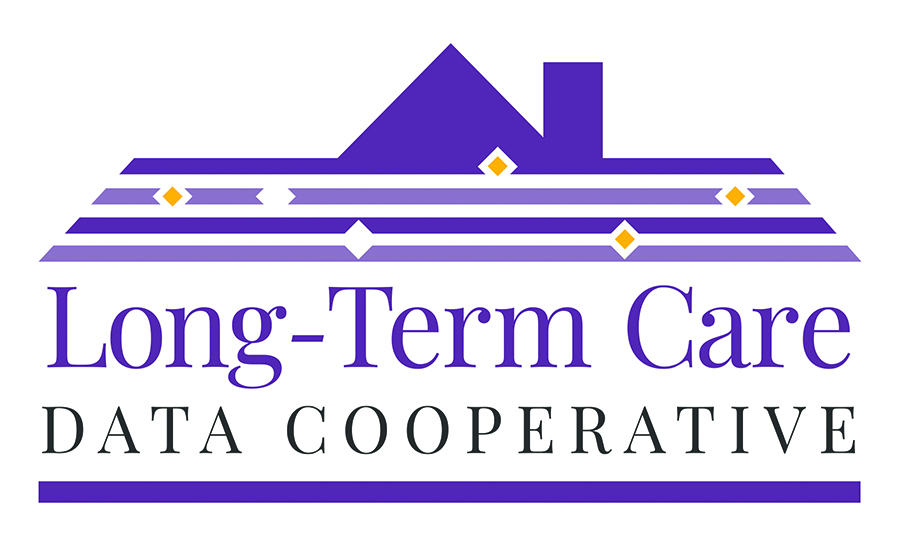Where Innovation Meets Data
The Long Term Care Data Cooperative
Claire Krawsczyn
11/1/2022
“The core advantage of data is that it tells you something about the world that you didn’t know before,” said Hilary Mason, a data scientist.
The American Health Care Association (AHCA)/National Center for Assisted Living (NCAL) is changing the way the long term and post-acute world gathers, analyzes, and shares data through the Long Term Care Data Cooperative.
 The Cooperative is the first of its kind in the world. Formed in partnership by AHCA/NCAL and Brown University and funded by the National Institute on Aging, the Cooperative is an effort to improve the quality of care within skilled nursing care centers through a new—and collaborative—approach to gathering and sharing patient data. Both the scale and the methods for aggregating data give the Cooperative its innovative edge. This large-scale effort involves any long term or post-acute care center across the nation that chooses to enroll, and the data are being gathered from multiple electronic medical record (EMR) software vendors into a single repository of information.
The Cooperative is the first of its kind in the world. Formed in partnership by AHCA/NCAL and Brown University and funded by the National Institute on Aging, the Cooperative is an effort to improve the quality of care within skilled nursing care centers through a new—and collaborative—approach to gathering and sharing patient data. Both the scale and the methods for aggregating data give the Cooperative its innovative edge. This large-scale effort involves any long term or post-acute care center across the nation that chooses to enroll, and the data are being gathered from multiple electronic medical record (EMR) software vendors into a single repository of information.
“This project was born out of a real need for better data during the pandemic,” said Dr. David Gifford, MD, MPH, chief medical officer and director of the Center for Health Policy Evaluation in Long Term Care at AHCA/NCAL. “It started with an idea of gathering data to truly understand how infection prevention methods were working within centers across the country and to gain better insights into the effectiveness of the vaccines. It grew from there into a look at the effectiveness of practices and the research required to make critical decisions about patient care.”
Determining Effectiveness of Treatments
In the long term care sector, the vast majority of treatments, medications, and practices that are adopted for use within nursing homes are often developed outside of the nursing home environment, explained Gifford. Their effectiveness for this population is unknown. Gaining access to long term care patients and data is complex, and researchers often use settings or younger populations more conducive to testing and data gathering.
 “The challenge then is determining what is truly effective and—equally as important—what is not effective specifically in a long term care environment,” said Gifford. “The Cooperative is helping to change this by providing access to real patient data for verified research opportunities.”
“The challenge then is determining what is truly effective and—equally as important—what is not effective specifically in a long term care environment,” said Gifford. “The Cooperative is helping to change this by providing access to real patient data for verified research opportunities.”
Through the Cooperative, vetted federally funded researchers would have access to data in a way that’s never been available before. Nearly 1,000 centers have signed up to participate in the Cooperative completely free of charge. As enrolled providers, these centers will feed real-time data from their EMRs to the Cooperative, where it will be translated into a shared data platform. As more centers participate, more data become available, offering better and more realistic insights into the effectiveness of treatments than have ever before been provided.
Providers Led the Effort
The benefits to researchers are numerous, but all research will be guided by the decisions of providers. Researchers will need to move through an extensive approval process to gain access to the Long Term Care Data Cooperative, which will include input from participating providers, who will have the opportunity to review each application and decide on appropriate uses of data.
 “This is, above all, a provider-led effort,” said Lonnita Myles, project director of the Long Term Care Data Cooperative. “We are involving providers every step of the way through town halls, one-to-one interaction, and large-scale feedback reports.”
“This is, above all, a provider-led effort,” said Lonnita Myles, project director of the Long Term Care Data Cooperative. “We are involving providers every step of the way through town halls, one-to-one interaction, and large-scale feedback reports.”
All participating centers in the Cooperative receive feedback reports, which can greatly influence patient outcomes, explained Myles. The comprehensive collection of data is an ongoing process that will continue for years to come, enabling centers to gain more insights with every new report.
“These feedback reports are a repository of all collected data, and it is an extremely effective roadmap to help providers decide what to do next. They will have the information they need to make important decisions within their own care centers,” said Myles. “The real impact of the Cooperative is the ability to see the effect of decisions as measured through data, thus allowing providers to take informed and educated next-steps in initiatives, procedures, and more.”
Connecting EMR Data to CMS Claims
In addition to feedback reports, centers are able to view linkage of available EMR data to Medicare claims. The Cooperative’s data-streaming process, which has been pioneered by data science expert Exponent Inc., will merge EMR data with CMS claims data to give centers rapid access to information about critical measures of quality care, such as rehospitalization rates.
Finally, participating centers have direct access to AHCA/NCAL leadership involved in the Cooperative as well as to experts in the industry who are connected to the Cooperative. The barrier to entry is low for centers who are interested in enrolling. In less than 30 minutes, most centers can complete the registration process. Additional introductory calls and information gathering will be coordinated by AHCA/NCAL. The process is completely free for all centers, and centers do not need to be active AHCA/NCAL members to participate.
“The existence of this program means it’s already a success,” said Gifford. “More than a thousand centers have enrolled, we’re receiving applications for research, and word is spreading. This is something that’s never been done before—and we’re proud to be behind it.”
For more information on the Long Term Care Data Cooperative or to enroll, visit https://www.ahcancal.org/Data-and-Research/Pages/LTC-Data-Cooperative.aspx or contact LTCDataCooperative@AHCA.org.
Claire Krawsczyn is a freelance writer and creative consultant serving industries such as long term and post-acute care. She can be reached at claire@goverano.com.